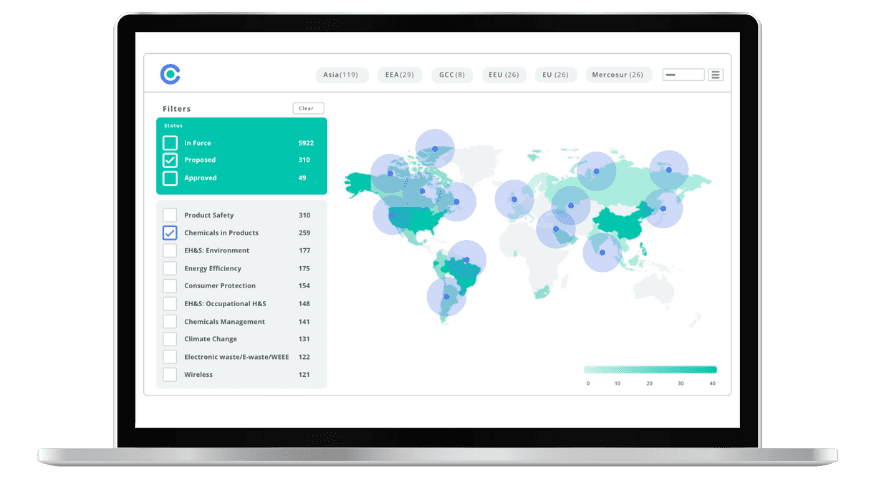
Moldova’s National Waste Management Plan 2023-2027

This blog was originally posted on 20th March, 2024. Further regulatory developments may have occurred after publication. To keep up-to-date with the latest compliance news, sign up to our newsletter.
AUTHORED BY RÚAN DOHERTY, REGULATORY COMPLIANCE ANALYST, COMPLIANCE & RISKS
Introduction
On 6 December 2023, the Moldovan Government enacted a Decree No. 972 to approve the National Waste Management Plan 2023-2027. This Decision entered into force on 6 March 2024.
The Plan aims to develop an integrated waste management system by 2027, which is economically efficient and ensures the protection of the environment and the health of the population.
In this blog, we give an overview of Moldova’s National Waste Management Plan 2023-2027.
Objectives of Moldova’s National Waste Management Plan 2023-2027
The main objectives of the Plan include, but are not limited to (Section 2):
- The development of the infrastructure and services necessary for an integrated waste management system aimed at preventing environmental pollution;
- The reduction of the amount of stored waste;
- Increasing the recovery and recycling rate of products subject to the extended producer responsibility regime by up to 40-60%; and
- Improving public awareness regarding the importance of waste management.
Categories of Waste
The categories of waste covered by the Plan include municipal and assimilated waste from trade, industry, institutions, including separately collected fractions and specific waste streams.
Such streams include:
- Bio-waste;
- Packaging waste, including glass, paper, metal, wood and plastic;
- Construction and demolition waste;
- End-of-life vehicles;
- Electrical and electronic equipment waste;
- Used batteries and accumulators;
- Used oils;
- Used tires; and
- Hazardous waste.
Environmental Fees and Taxes
As per the EPR scheme, economic agents that produce, process, sell and/or import the aforementioned products, are obliged to collect, transport, sort and recover waste, including packaging, to organize information campaigns for citizens, to encourage and stimulate them to sort and collect.
If they reach the waste collection targets, such economic agents are exempt from paying environmental fees and taxes. The Plan outlines specific waste collection and recycling rates for various types of waste-types within the EPR scheme, for two periods between 2023 and 2027.
Stay Ahead Of Regulatory Changes
Want to stay ahead of regulatory developments like Moldova’s National Waste Management Plan 2023-2027?
Accelerate your ability to achieve, maintain & expand market access for all products in global markets with C2P – Your key to unlocking market access, trusted by more than 300 of the world’s leading brands.
C2P is an enterprise SaaS platform providing everything you need in one place to achieve your business objectives by proving compliance in over 195 countries.
C2P is purpose-built to be tailored to your specific needs with comprehensive capabilities that enable enterprise-wide management of regulations, standards, requirements and evidence.
Add-on packages help accelerate market access through use-case-specific solutions, global regulatory content, a global team of subject matter experts and professional services.
- Accelerate time-to-market for products
- Reduce non-compliance risks that impact your ability to meet business goals and cause reputational damage
- Enable business continuity by digitizing your compliance process and building corporate memory
- Improve efficiency and enable your team to focus on business critical initiatives rather than manual tasks
- Save time with access to Compliance & Risks’ extensive Knowledge Partner network

Reducing Manual Efforts In Regulatory Impact Assessment
Join us for an insightful webinar where we’ll explore strategies, tools, and best practices for reducing manual efforts in Regulatory Impact Assessment.


